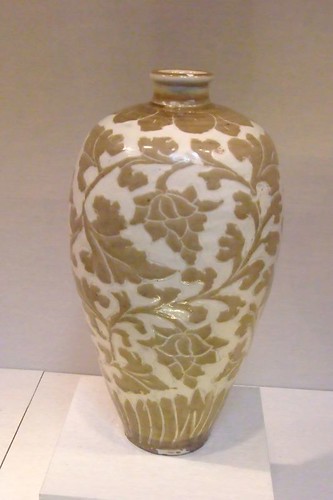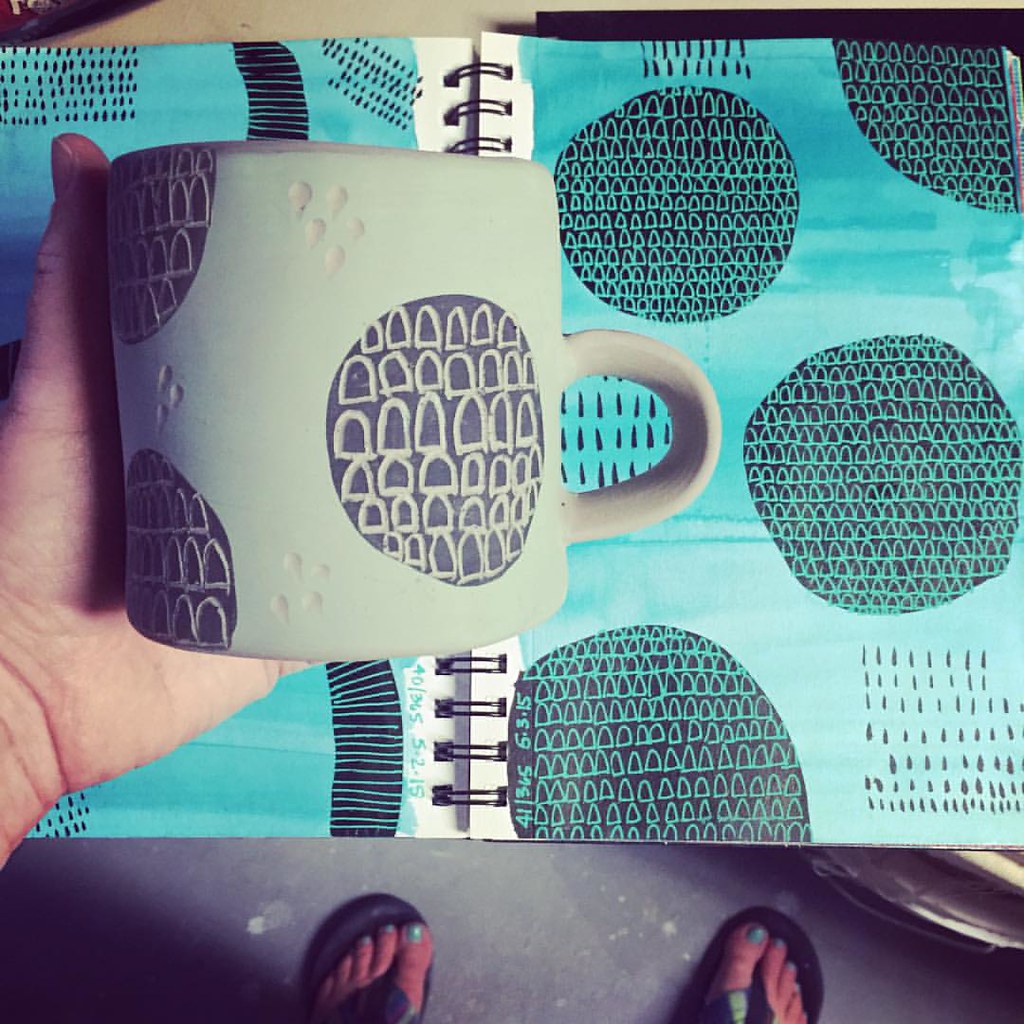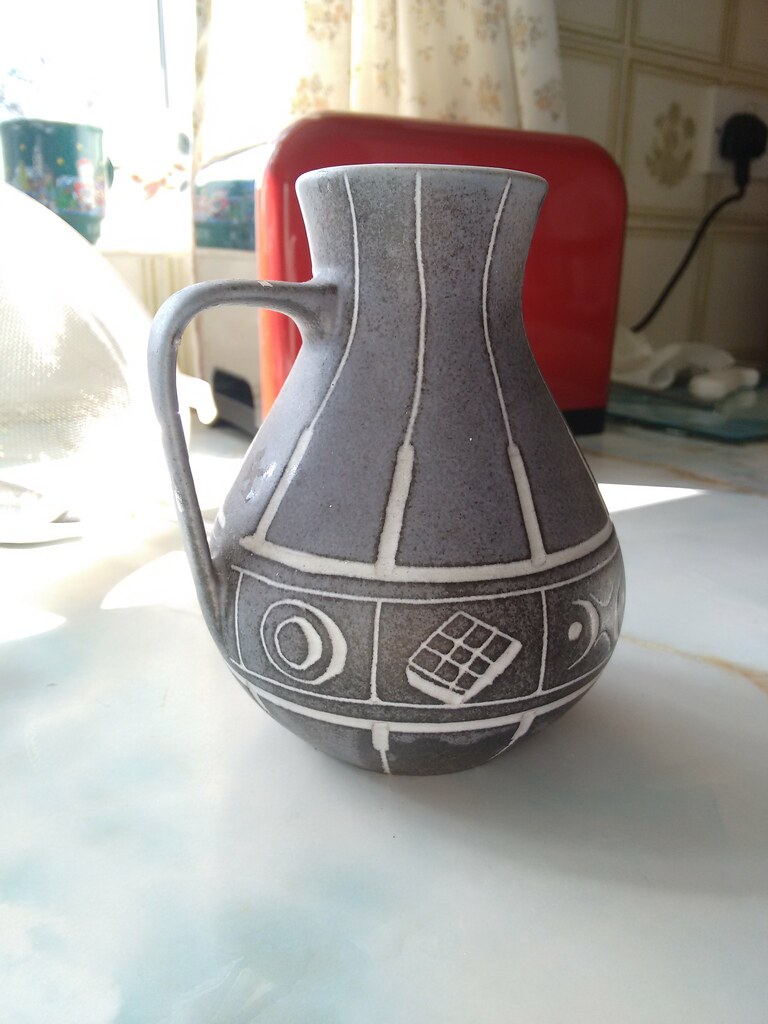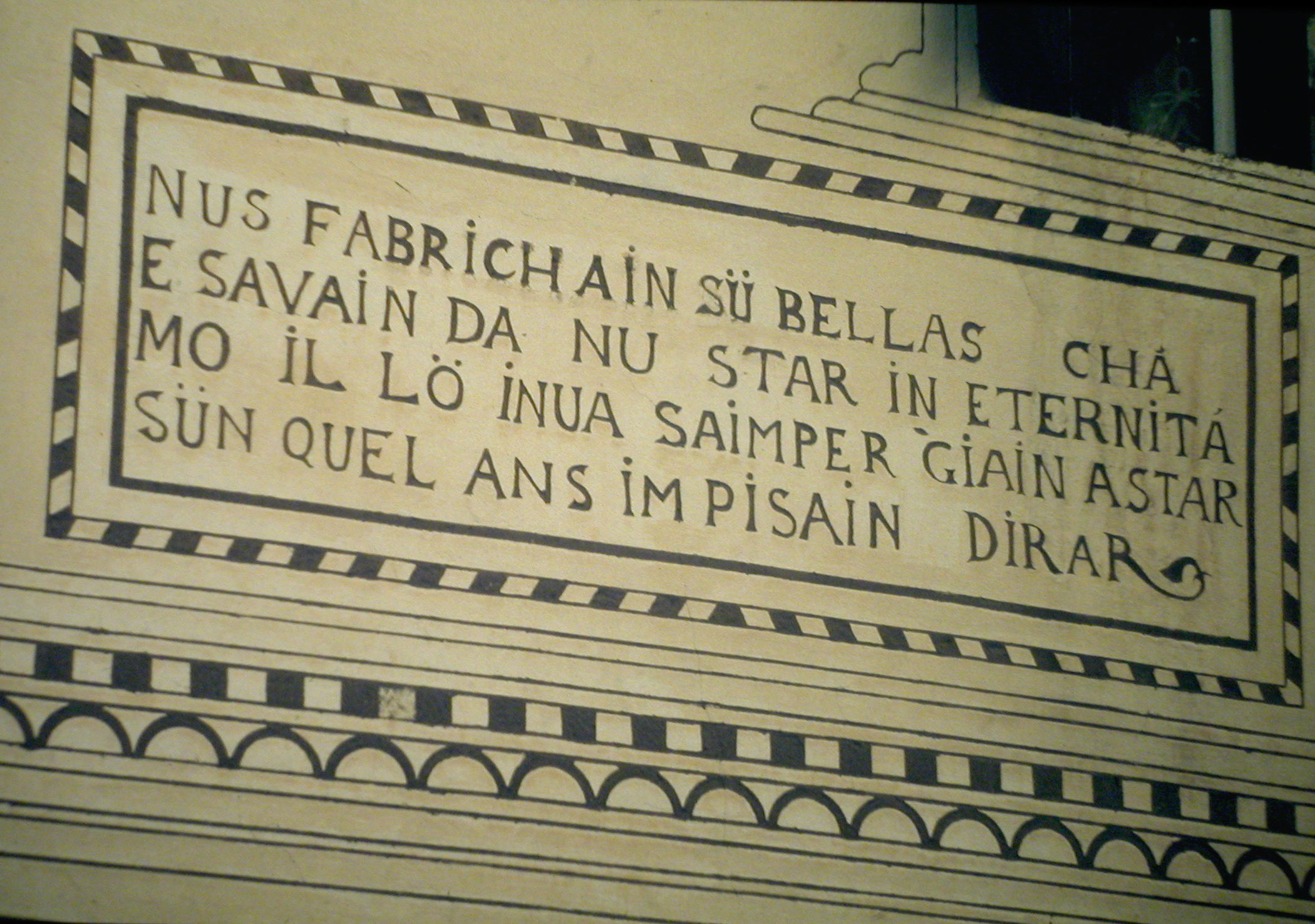Exploring the Art of Sgraffito: A Timeless Pottery Technique

The ancient art of sgraffito—a practice where designs are created by scratching away a surface layer to reveal a contrasting layer beneath—has been celebrated across cultures and age groups for its unique blend of texture and aesthetics. This timeless method forms a deep connection with our history and creativity.
The Historical Roots of Sgraffito

Sgraffito has roots dating back to classical antiquity, with early samples found across civilizations. One notable piece is a wine bottle with sgraffito foliage design from the University of Michigan, highlighting its historical significance. The intricate designs found on such pieces reflect the skill and creativity of artisans across different eras.
Modern Interpretations and Techniques

Today, artists continue to explore and express themselves through sgraffito. At workshops like the Yeonsoo Kim Visiting Artist Workshop at Harvard, participants use slip and sgraffito techniques on clay to create modern interpretations of age-old designs. These contemporary workshops emphasize the versatility and adaptability of sgraffito, encouraging artists to experiment with various materials and methods.
Notable Artists and Their Contributions

A prominent piece featuring sgraffito technique is the creation by Tse-Pé and Dora Gonzales, San Ildefonso sgraffito jar, which showcases traditional Native American pottery art. These artisans are renowned for incorporating intricate sgraffito designs into their work, preserving cultural stories through pottery.

Another inspiring artist, Cynthia Thomas, utilized sgraffito to incorporate Oneida line designs as seen in Watahine, She Likes to Travel. Her work reflects both cultural heritage and modern artistry, presenting a unique narrative through ceramic pieces.
Educational Opportunities and Workshops
Learning sgraffito offers numerous educational benefits, blending historical awareness with creative expression. In communities like Kent County, students engage with pottery in hands-on environments. Programs in Kent County allow participants to practice using pottery tools and techniques like sgraffito, encouraging them to carve their own artistic paths.
The Timeless Appeal of Sgraffito
Sgraffito continues to captivate new generations of artists and art enthusiasts. This ancient technique fosters a deep connection with history while enabling innovative expressions. As we explore this art form, we uncover not only our heritage but also the potential for creative growth and expression through time.
For those interested in delving deeper into art and design, exploring recent articles and content offers exciting perspectives on current trends and historical artistry, fueling passion and knowledge in the artistic community.
Enhance Your Sgraffito Techniques with Expert Tips
Simple easy sgraffito designs offer a delightful entry point into the world of pottery decoration, combining creativity with simplicity to produce beautiful and distinctive pieces. To further develop your skills and explore advanced methods, check out Little Street Pottery’s video, “Mastering Sgraffito: 5 Pottery Tips & Tricks You Need To Know!”
How to do sgraffito step by step?
Sgraffito on a large bowl can feel surprisingly simple if you’re looking for an easy design project. Here’s a straightforward approach:
• Step 1: Lightly Clean the Working Surface
Make sure your bowl is free of dust or debris. A clean surface helps the slip or underglaze adhere properly.
• Step 2: Apply the Slip or Underglaze
Use a brush or sponge to coat your leather-hard bowl with the color of your choice. This layer provides the contrast you’ll reveal when carving your sgraffito design.
• Step 2.5: Let the Underglaze or Slip Dry
Give the surface enough time to set. This ensures crisp, clean lines once you start carving.
• Step 3: Carve Your Design
Grab a carving tool or a fine-tipped tool and gently scratch into the slip. Reveal the clay beneath by following or sketching simple, easy sgraffito designs you love.
• Step 4: Clean Up and Finishing
Brush away any loose debris and smooth out any rough areas to finalize your design. Once completely dry, your piece is ready for firing.
What’s the difference between sgraffito and mishima?
The main difference is in how the slip interacts with the carved lines. Mishima involves carving into the clay first, then filling the lines with slip before wiping away the excess. In contrast, sgraffito starts with a slip-coated surface that you carve through to reveal the clay underneath. Both techniques let you create layered, textured designs that showcase depth—much like nature’s gradual etchings over time.
How many layers of slip for sgraffito?
Leather-hard clay is very absorbent, so you may need five to seven layers of slip to achieve a vibrant color. In comparison, if the clay were fully dry, only two or three layers might suffice. Applying multiple coats also makes your carved lines stand out more dramatically for simple sgraffito designs.
What stage of clay is best for sgraffito?
A smooth, leather-hard clay body is typically ideal for sgraffito. The slight moisture in the clay helps prevent accidental chipping as you carve. If your clay has a lot of grog or sand, your carving tool may skip or catch on these rough particles, leading to uneven lines. By choosing a smoother clay and working at the leather-hard stage, you’ll achieve crisp, consistent results.
Embarking on sgraffito projects is a fantastic way to express your creativity without feeling overwhelmed. With these simple and easy designs, you can start crafting stunning pottery pieces that truly stand out. Whether you’re a beginner or looking to refine your skills, sgraffito offers endless possibilities to bring your artistic visions to life.
Join Our Creative Community
I'd love to see the beautiful pieces you create! Don't hesitate to share your sgraffito masterpieces and stay updated with new ideas by following us on Instagram. Let's continue this creative journey together!
